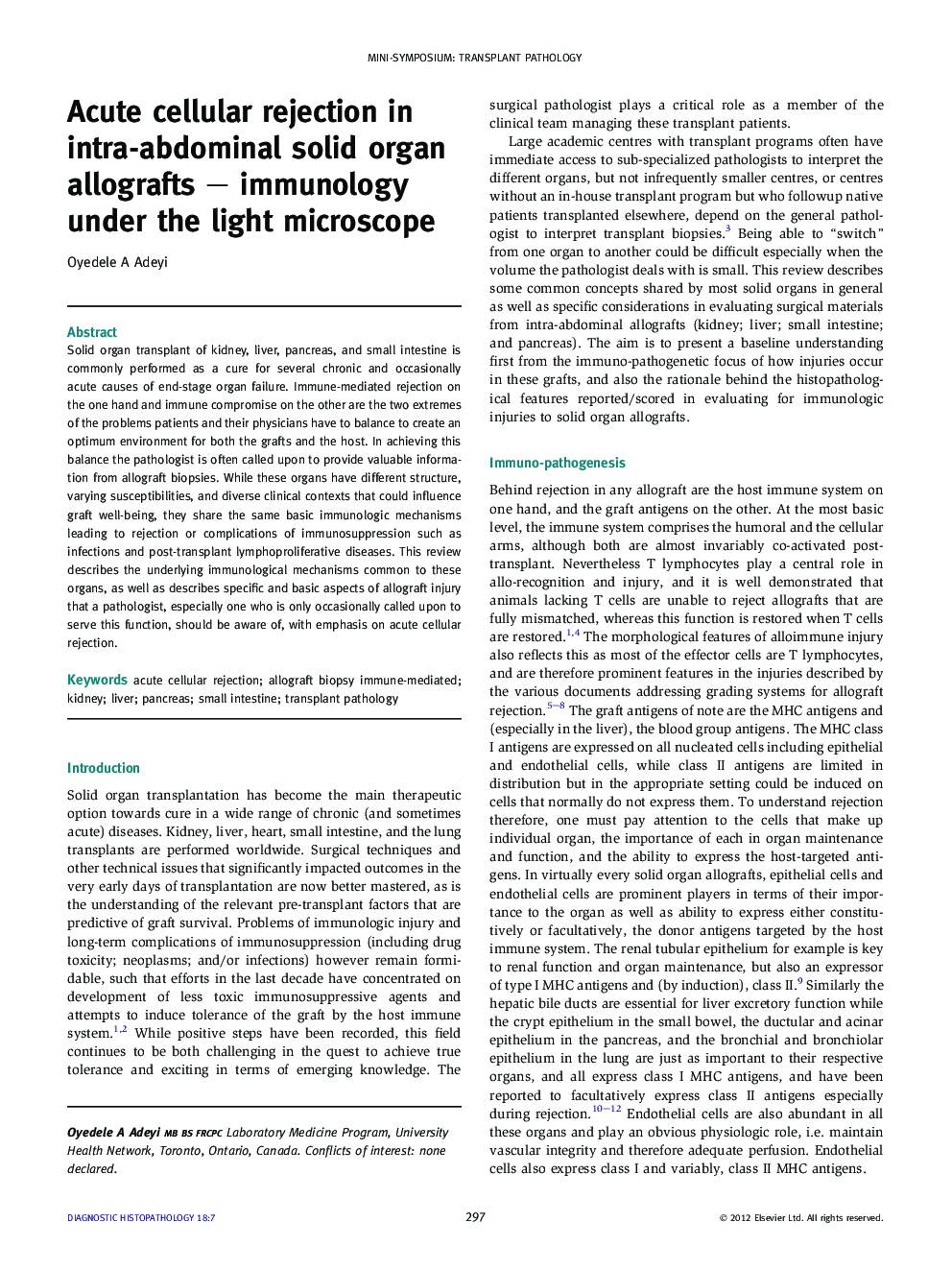| Article ID | Journal | Published Year | Pages | File Type |
|---|---|---|---|---|
| 4131341 | Diagnostic Histopathology | 2012 | 10 Pages |
Solid organ transplant of kidney, liver, pancreas, and small intestine is commonly performed as a cure for several chronic and occasionally acute causes of end-stage organ failure. Immune-mediated rejection on the one hand and immune compromise on the other are the two extremes of the problems patients and their physicians have to balance to create an optimum environment for both the grafts and the host. In achieving this balance the pathologist is often called upon to provide valuable information from allograft biopsies. While these organs have different structure, varying susceptibilities, and diverse clinical contexts that could influence graft well-being, they share the same basic immunologic mechanisms leading to rejection or complications of immunosuppression such as infections and post-transplant lymphoproliferative diseases. This review describes the underlying immunological mechanisms common to these organs, as well as describes specific and basic aspects of allograft injury that a pathologist, especially one who is only occasionally called upon to serve this function, should be aware of, with emphasis on acute cellular rejection.
